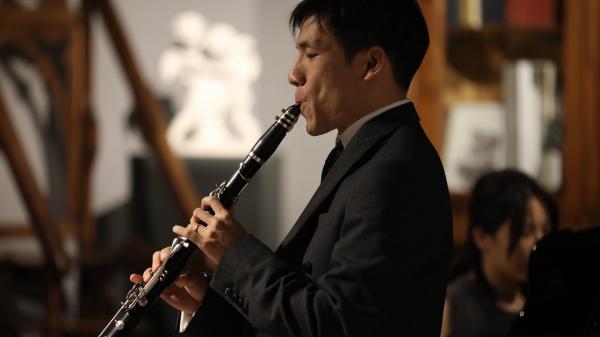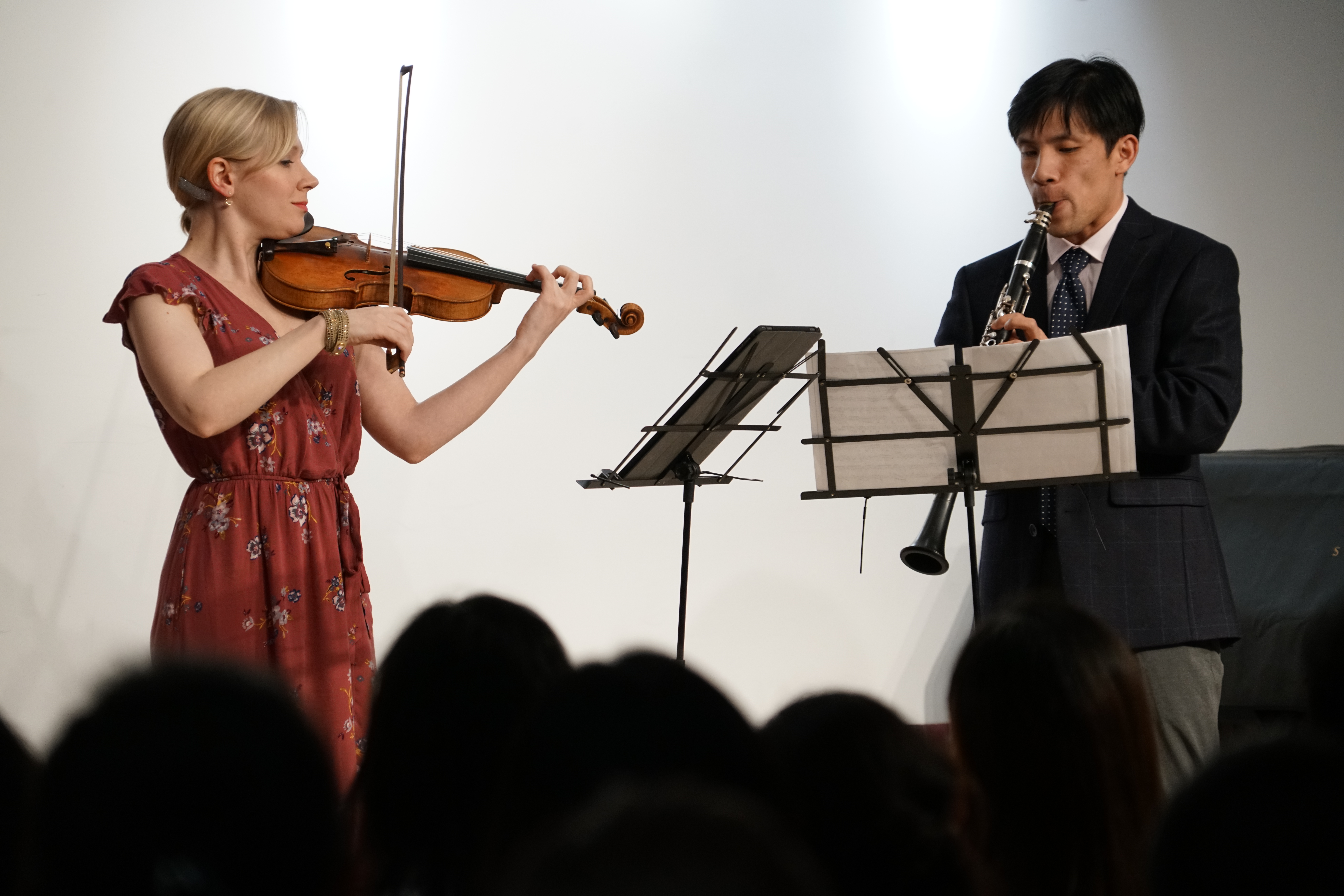
Clarinet faculty Xiangyu Zhou shares his reflections after an exhilarating eight-city tour in China for Pre-College auditions, master classes, and concerts, alongside other faculty members.
By Xiangyu Zhou
The Tianjin Juilliard School’s first Pre-College student auditions have successfully concluded. In the span of three weeks, the faculty and the Admissions team traveled to eight cities in China: Shenzhen, Guangzhou, Shanghai, Qingdao, Beijing, Tianjin, Wuhan, and Chengdu. We listened to students auditioning for the Pre-College program, conducted master classes, and also held free public performances for local communities in every city.
I heard and observed all the wind and brass instrument applicants’ live performances during the auditions. On this audition tour, students were able to perform the works according to the repertoire requirements provided. In some cases, their performances far exceeded the level of difficulty that was required of their Pre-College auditions.
Here are some of my observations on some of the challenges that students are most likely to encounter at live auditions and key areas for students to note during daily practice and audition preparation.
1. Identify areas for improvement
At the live auditions, the faculty asked the students a number of questions following their performances. We asked students how long they spent preparing for the audition pieces and wanted them to tell us, in their own words, which parts of their performances needed the most improvement. Some of the students identified ‘weak’ areas that I felt were actually their strengths. Students may not always be able to correctly identify their own strengths and weaknesses. From their responses, I also sensed that the students would need more efficient methods during their practice time. Music is a comprehensive form of artistic expression - to know clearly what one’s weaknesses are and to improve them accordingly, will greatly increase both efficiency and motivation.
2. Refine your everyday practice habits
Challenges that students often face are not reflected in their ability to perform difficult repertoire. In fact, the issues that often appear during an audition are usually the most easily overlooked problems that occur during regular practice by a student: dullness of sound production, inaccurate rhythms, unstable tempo, lack of reasonable phrasing, and tone variations in musical expressions.
3. Pay attention to the scales
There is also a very interesting phenomenon: many students can play the pieces they have prepared fine, but they may not play the scales equally well. From my point of view, this is likely caused by insufficient attention to basic scale training during daily practice, as well as practicing without a focus or purpose. There are also some students who have displayed very different levels of performance when playing two or three pieces, which may be an indication that these students need a more balanced playing technique to overcome the challenges of delivering varied musical repertoires. There is room to improve the wind instrument pedagogy in China, which requires the input from both teachers and students.

Photo credit: Nick Corasaniti
On the master classes and faculty performances
Apart from the auditions, our applicants got to know our faculty as teachers and performers. We received a very warm welcome across China. The public concerts were attended by young talented musicians, families, teachers, and locals. In the martial arts novels written by renowned novelist Louis Cha, also known by his pen name, Jin Yong, the heroes in his memorable stories become friends through duels and acts of chivalry. Similarly, my colleagues and I communicated with each other through music and really got to know each other during the process. We were strangers to each other when we first performed as a group in Shenzhen, and by the end of our tour in Chengdu, we had established a very good level of mutual trust on the stage.
In the future, I plan on encouraging all my students to attend the open master classes so that they can benefit from different teaching styles and educational philosophies. I attended all the master classes that took place in the eight Chinese cities, and was inspired by the diverse approaches to music education. At the master class that took place in Wuhan, piano faculty Xiaohan Wang had asked for my participation in his open class where I played the “right hand” part on the keyboard while he had the student play the “left hand” part in collaboration. Through this direct intuitive practice of completing the repertoire together, the student became more perceptive. It also changed the student’s understanding of collaboration in music, and cooperative echoing in performance. As a teacher, it is the most gratifying experience to help each student in the classroom and see them improve.
Born in Xi’an, Xiangyu Zhou is Tianjin Juilliard’s Clarinet faculty and will be teaching Pre-College, as well as Graduate Studies.